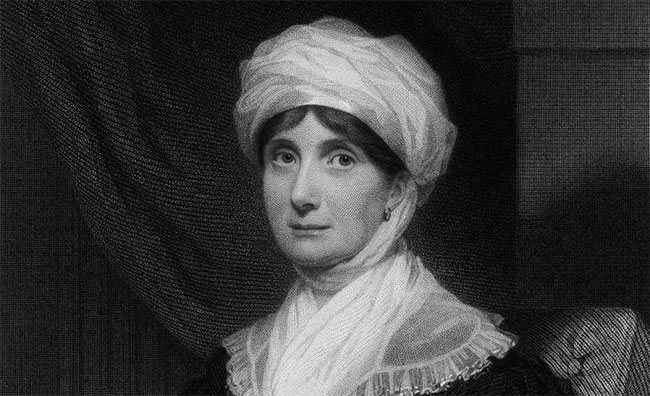Joanna Baillie - a famous Scottish poet
Joanna Baillie is a Scottish poet and playwright, famous for her works of interest in moral and Gothic philosophy.
As a child, Joanna revealed her ability to organize a stage with her classmates and maintain this hobby until attending a boarding school in Glasgow.
Joanna's literary talent began to grow when she moved to London, Fitzrovia, met with famous novelist Fanny Burney and began to approach English literature. Soon after, she released her first poem entitled "Winter Day".
Since then she began to study seriously about drama and reading of Shakespeare, Racine, Moliere and Voltaire.

Joanna Baillie - Scottish poet and playwright.
When the family moved to Colchester in 1791, Joanna began to formulate ideas for Plays on the Passions and spent the decade writing Basil, The Tryal and De Monfort.
Joanne's play "Drury Lane production of De Monfort" pened out to the audience in 1800 with the participation of two leading actors, Sarah Siddons and John Kemple, but failed to meet expectations. It was revived in 1821 with a better result.
Joanne Baillie continued writing the second part of 'Drury Lane production of De Monfort' in 1802 and part 3 in 1814. At the same time, she moved to Hampstead with her sister. Not long after that, she released the famous poem The Family Legend.
By 1840, she wrote the last volume of the poem Fugitive Verses, reminiscent of her first works written in the 1790s.
Admired for his intelligence, humor and his tendency to be weak, Joanna Baillie is one of the most respected poets and playwright of this period. With a large collection of works that have a very unique mark in the literature of the literature at that time, she was recognized by the very famous colleagues from William, Wordsworth and Lord Byron.
As she gets older, she spends most of her time in charitable activities. Joanne died at her home in Hampstead on February 23, 1851, at the age of 88. Today Google treats 256 years of her birth.
- Recreate the poet Dante's face after 700 years
- Google Doodle celebrates the birthday of poet Xuan Quynh
- Unexpected disclosure of great poet Shakespeare
- Life in the eyes of myopia
- Mysterious death of Russian poet Sergei Esenin
- The woman with the devil face became surprisingly beautiful after 3 years
- Found the gay love letter of the ancient Greek poet
- New mold for bio hand technology
- Mysterious curse on Shakespeares grave
- Huge tuna caught by strong storms washed ashore on the Scottish coast
- A half-meter diameter truffles in Scottish forests
- Fuel for cars and aircraft from Scottish whiskey
 The Indian prophet prodigy warned 3 events and what will happen on April 13, 2022
The Indian prophet prodigy warned 3 events and what will happen on April 13, 2022 Top 8 youngest professors in the world: Teaching university at the age of 18
Top 8 youngest professors in the world: Teaching university at the age of 18 Elena Cornaro Piscopia - The world's first female doctor of philosophy
Elena Cornaro Piscopia - The world's first female doctor of philosophy The ancient Greek philosopher was executed for understanding the Moon
The ancient Greek philosopher was executed for understanding the Moon